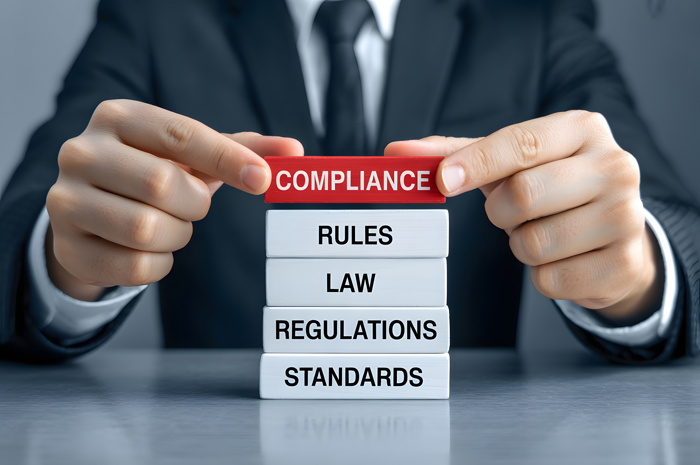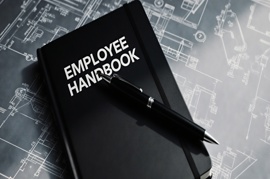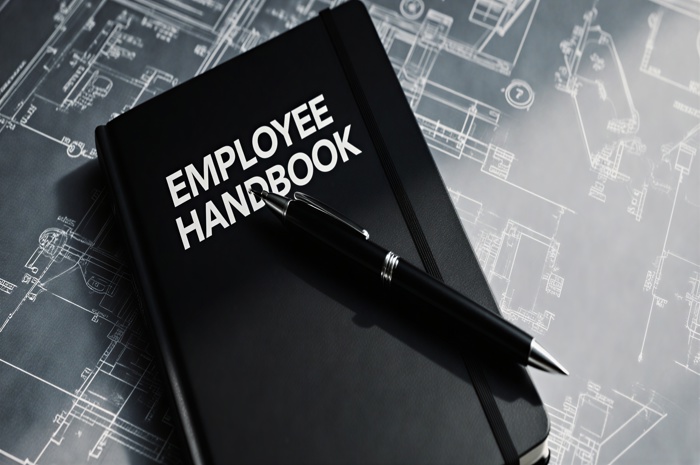As your small business grows, clear and well defined policies and procedures become vital for ensuring legal compliance, consistency and a healthy work environment. Throughout this article, we will look at what these policies and procedures and what your legal requirements are and how you can implement them into your small business.
What Are HR Policies?
HR policies offer direction on how various matters are to be managed within your small business. They outline core principles, along with the rights and responsibilities of both managers and employees.
These policies and procedures are essential for promoting fairness and uniformity across the organisation and can also serve as a safeguard against legal issues. However, their true effectiveness depends on how well they are communicated and put into practice.
Why Are They Relevant To My Small Business?
As mentioned, HR policies and procedures in the UK are designed to protect employee rights whilst clearly outlining expectations for both employers and staff. They typically include essential job details such as salary, working hours and annual leave. They also establish structured processes and procedures for areas such as recruitment and disciplinary procedures. The policies can help businesses comply with statutory requirements and provide support in the event of legal challenges.
HR policies and procedures can also contribute to improved employee clarity. This can refer to clarity around roles, responsibilities and procedures. When employees understand what is expected from them and how they can report any issues, it opens communications. This transparency aims to support a more collaborative and productive workplace.
Which Policies Should My Small Business Implement?
When incorporating a business, it’s common not to prioritise implementing policies, particularly if you are the only person involved with the business. However, as your small business begins to grow and you start hiring staff, it becomes essential for you, as a director, to determine which policies and procedures should be introduced. Ideally, these should be in place before onboarding your first employee.
Legally Required Policies
Although some HR policies and procedures are optional and can be tailored to suit your small business, there are specific legally required policies that all employers are obliged to implement.
Health and Safety
Health and safety policies are a legal requirement and are crucial for safeguarding employees from potential workplace hazards and ensuring the organisation complies with legal obligations. These policies should outline procedures such as conducting risk assessments, identifying fire assembly points, implementing emergency response plans, and providing staff training to maintain a safe working environment.
For example, if you operate a small workshop with five employees, it is your responsibility as the director to carry out a thorough risk assessment and make sure all employees are fully informed about the emergency procedures, such as what to do in the event of a fire. This proactive approach helps minimise risks and ensures everyone knows how to respond in a crisis.
Disciplinary and Dismissal
Disciplinary and dismissal policies provide a fair, unbiased process for handling misconduct and performance issues, ensuring compliance with legal standards. It must protect the rights of both the employees and the employer. They also define proper procedures for termination of employment to help prevent claims of unfair dismissal.
Grievance
Employees need to know who to approach when they have a concern, as grievances can be a sensitive area of discussion. Clear guidance and fair handling of grievances helps to create a supportive and open workplace culture where employees feel supported and confident that their concerns will be addressed.
Highly Recommended Policies
As noted earlier, whilst not all policies are legally required, some are strongly recommended to ensure compliance with legal obligations and to effectively support your workforce.
Data Protection and Privacy
Businesses are legally required to protect the personal information of employees and customers. As a small business owner, you must have a privacy policy that clearly outlines how this information is collected, used and managed. Such policies specify what data can be shared publicly and what must remain confidential, including sensitive details such as employee addresses, phone numbers and email addresses.
Sickness and Leave
Employee absences are inevitable and can occur for various reasons, such as sickness, holidays, bereavement, jury service, or parental leave. It’s strongly recommended to have a clear policy in place that outlines the types of leave available, the associated benefits, and the procedures employees must follow to request time off. This helps ensure consistency, transparency, and effective workforce management.
Equal Opportunities
This policy plays a key role in promoting a diverse and inclusive workplace by ensuring all employees are treated fairly and equally. It should cover important areas such as discrimination, fair pay, and promotion practices, helping to enhance fairness across the business. It is one of the most vital policies for supporting equality and diversity in the workplace.
Flexible Working
Employees have a legal right to request flexible working after 26 weeks of continuous employment for the company. The policy can include changes such as working from home, adjusted start and finish times and altered work patterns. Having a flexible working policy in place ensures that any requests are handled fairly and consistently. It also provides clear guidance for both employers and employees on their rights and the steps involved in making and managing such requests.
Bullying and Harassment
This policy should establish a clear framework for preventing and addressing inappropriate behaviour in the workplace. It must include formal procedures for reporting incidents, conducting investigations and ensuring all employees are treated consistently in the event of a complaint. This is essential for promoting a safe, respectful and inclusive work environment.
Social Media
In today’s social media driven world, an employees online behaviour can have an impact on a company’s reputation. While personal social media activity is generally private, the lines can become blurred, especially when employees list their employer on their profiles. If inappropriate behaviour online is linked back to the company, it can reflect poorly on the business. A clear social media policy helps define acceptable conduct and sets boundaries, protecting both the employee's rights and the company's public image.
How Does A Small Company Develop Policies?
We have now reviewed an array of key policies, highlighting those that are particularly important. That’s all well and good, but as an employer, how do you as a small business go about developing and implementing these policies effectively? The following section outlines the steps you should consider taking.
Identify The Need For The Policy
The policies and procedures a company adopts should reflect the specific needs of the organisation. Whilst some HR policies are legally required by UK government bodies, others are optional and can be introduced to better support your team. Ensure you implement the policies that best address your workplace issues, such as health & safety, flexible working, equal opportunities, etc.
Define The Policy
As an employer, it’s important to clearly define the scope of each policy to ensure employees understand and follow them in line with relevant legislation. Since these policies will apply to individuals across various roles, using clear and straightforward language is essential to improve understanding and reduce the risk of confusion or misinterpretation.
Communicate Policies To Employees
Once the policies have been established, it’s crucial to communicate them effectively to new employees and ensure they understand the changes. This is typically done through an employee handbook or internal systems. In some cases, additional training or guidance from the employer may be necessary to support full understanding and proper implementation.
Regularly Review And Update Policies
Make sure the policy is consistently followed and enforced in a fair manner. Regularly review and update it to ensure it remains aligned with your business needs and any changes in UK legislation or operations.
Looking For Further Information?
I hope this article has helped to explain which policies to implement for your small business. To learn more about topics relevant to small and micro businesses, please explore our Knowledge Base. If you have additional questions about any legislative policies, please do not hesitate to contact us.





















